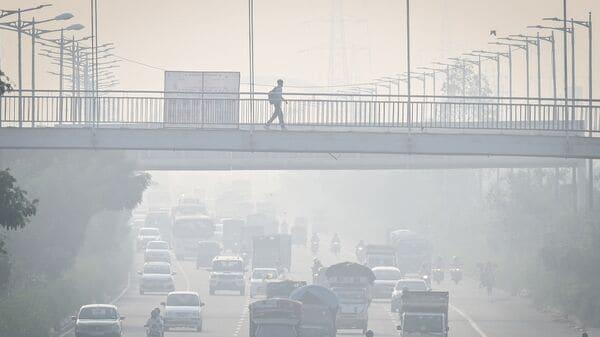
Overlook Sources Contribute Up To 40% Of City Pollution, Finds IIT Delhi Study
This comes as the winter season (November-February) is around the corner, a period when the pollution in the national capital worsens. The air quality index in Delhi on Thursday evening was 162 or in the 'moderate' category, according to the Central Pollution Control Board.
The findings of the IIT-Delhi study, released on Thursday, demonstrate significant improvements in air quality in urban areas by addressing dispersed sources of pollution, such as unpaved roads, waste dumping and garbage burning.
Also read: India plans stricter quality standards to tackle air pollution Sources of pollutionThe comprehensive study was conducted in three selected clusters of Delhi, including Jahangirpuri, Rohini, and Karol Bagh. A total of 35 portable low-cost sensors (PLCS) were deployed across these locations from July 2023 to March 2024 under the Dispersed Sources Program (DSP) of the Commission for Air Quality Management (CAQM-NCR). The study, conducted by Sagnik Dey of the Centre for Atmospheric Sciences at IIT Delhi, recommends nationwide adoption of the programme.
The PLCS captured real-time data on pollution levels before and after the interventions, helping the research quantify the direct impact of specific actions. It provided clear evidence that targeted efforts against dispersed pollution sources can lead to measurable improvements in air quality.
Dispersed sources of pollution like dust and garbage account for 25-40% of pollution in cities across North India, according to the study. Despite their substantial contribution to poor air quality, these sources receive less attention against industrial emissions and vehicular pollution.
The programme to quantify dispersed sources of pollution was implemented in collaboration with urban local bodies. It focuses on resolving issues in two ways--long term and short term. Long-term issues, such as repairing unpaved roads, fixing broken footpaths and dividers, and addressing significant potholes, require budgetary approval and a resolution period longer than 30 days. Legal Disclaimer:
MENAFN provides the
information “as is” without warranty of any kind. We do not accept
any responsibility or liability for the accuracy, content, images,
videos, licenses, completeness, legality, or reliability of the information
contained in this article. If you have any complaints or copyright
issues related to this article, kindly contact the provider above.


















Comments
No comment